Outlook for Ukraine is pretty bleak, no matter who prevails
You need to understand Ukrainian history to understand Euromaidan and the turmoil in Ukraine
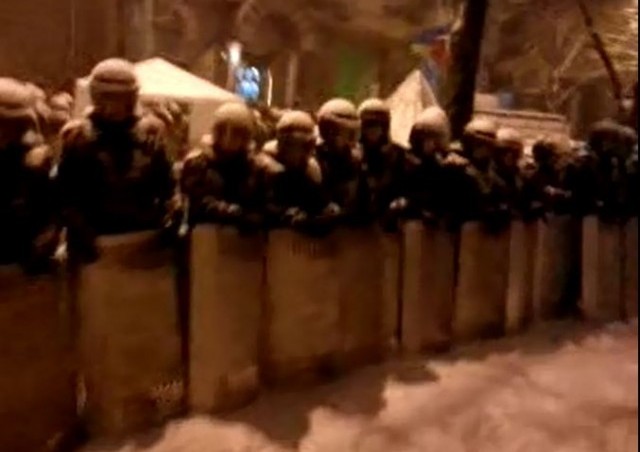
Watching the coverage of Ukrainian protests last months, I found most Western media outlets a bit too eager: Yay! Protest! People on the streets!
The Russian state media has its own agenda, of which, I think, most readers of this blog are aware.
Some Americans writing for Kyiv Post have a tendency to whitewash the ugliest sides of Ukrainian nationalism.
I’ve seen some curious ideas on wiki, too: that Nazi collaborationist Stepan Bandera “fought for Ukrainian independence from Soviet Russia and Nazi occupation during World War II, and against all perceived enemies of a free Ukrainian state.” or that prosecuting Ukrainian WW2 criminals is an example of anti-Ukrainian sentiment (I believe this one is from Pat Buchannan’s playbook). The bit about Bandera “fighting” reverberates through Western media.
I am an American citizen and a Jew, a native of Kharkov, a Russian-speaking city in what was, when I was growing up, the Ukrainian Soviet Socialist Republic. I often get questions about Ukraine. My short answer is, no matter who prevails, the outlook for Ukraine is pretty bleak.
The long answer is that Ukrainian history is both fascinating and disturbing. Take the Cossacks, for instance. They were semi-nomadic dwellers of Poland’s Eastern Borderland known for military prowess and probably runaway slaves. They were Eastern Orthodox, had a republican form of government with an administrative center in Zaporozhian Sich.
In 1648, lead by a minor Polish noblemen Bohdan Khmelnitsky, the Cossacks rebelled, and in the course of the rebellion eradicated the local Jewish population, slaughtered Polish landowners and priests and burned Catholic churches.Initially allied with the Ottoman Empire, in 1654 the war-weary Cossacks signed a treaty with Muscovy. The Tzars annexed the territory granting autonomy to Sich. Up until the Bolshevik revolution, the Cossacks served the Russian Empire, guarding it’s South-West periphery from Turkish and Tartar raids.
Today’s Cossack revival movement attempts to resurrect some of that tradition, for instance, a few days ago there was news about Cossacks guarding the Sochi Olympics: Come to Sochi for the pleasure of being detained by an authentic-looking dude in a furry hat. Maybe he’ll show some cool tricks with a sword, too.
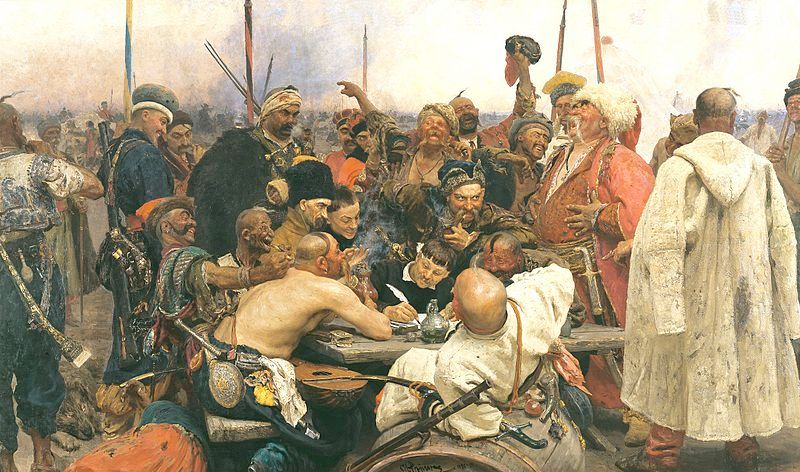
[Reply of the Zaporozhian Cossacks to Sultan Mehmed IV of the Ottoman Empire (1880-1891) by Russian painter Ilya Repin who was born in present day Ukraine. The painting is inspired by the legend about the Cossacks sending an irreverent, profanity-laden letter to the Turkish sultan]
In 1775 the tzarina abolished Zaporozhian Sich, distributing the land to Russian and Ukrainian landowners. Some Cossacks fled, other less fortunate former free-wheeling warriors eventually became serfs, most tending the fertile lands of the “Breadbasket of Europe”. To Ukrainians of a more nationalist bend, particularly the ones who claim Cossack roots, don’t thank Catherine for expanding their country; she remains the personification of a despotic regime — and who can blame them?
Some conservatives believe that Ukraine’s qualms with Russia date back to Holodomor. Not true. Beginning with the reign of Peter the Great (late 17th-early 18th century) and ending with the demise of the Romanoffs, the tzars prohibited publications in Ukrainian and Ukrainian instructions in educational institutions. Some linguistic blending occurred naturally: in the 18th century, Surzhyk, a hybrid dialect of Ukrainian and Russian emerged in Eastern Ukraine. Nikolai Gogol, a 19th century Russian writer of Ukrainian descent, best known for novel Dead Souls, wrote parts of his novella Evenings on the Farm Near Dikanka in Surzhyk. Gogol was first in a long line of Russian literary figures with ethnic and/or biographical connections to Ukraine.
20th century Ukraine was the stage of some of the bloodiest events in modern history. First, a wave of pogroms followed Russia’s defeat in war with Japan in 1905. During the civil war that followed the 1917 Bolshevik revolution, Ukraine plunged into chaos with multiple coups and several powers vying for control.
Nearly all of them unleashing a wave of pogroms, but the worse came from Symon Petlura’s Ukrainian People’s Army that murdered an estimated 16,000 Jews. Petlura’s otaman (general) Andriy Hulyi-Hulenko is believed to have had made up his own version of the Protocols of Elder of Zion, a fake Trotsky speech.
Petlura-lead short-lived Ukrainian National Republic is interesting as a democratic predecessor to modern Ukrainian state. The Republic had a constitution and various political parties, including Jewish parties, were represented in Central Council (Rada). But UNR’s grip on power was tenuous, and Petlura’s name today is synonymous with pogroms.
Wiki being Wiki, the discussion of pogroms on Petlura’s page is all but whitewash. To be sure, there is no evidence that Petlura ordered pogroms, but Wiki editors insist on guarding Ukraine’s hero plausible deniability of knowledge of widespread atrocities committed by his troops, claiming that once he found out, Petlura did make some (inconsequential, I must say) moves to curb them. Per Wiki, Petlura was not personally anti-Semitic, because, being a prolific writer, he left a large body of work, and there is nothing anti-Semitic there.
But by the same token they are not pointing to any philo-Semitic work (not that he’s required to produce it) or showing him being particularly troubled by violence perpetrated by Ukrainian nationalists under his command against 9% of the country’s population. Petlura was assassinated (“slain” as Wiki puts it) by a Jewish anarchist in 1927.
In 1932-33 Joseph Stalin reinstituted serfdom via collectivization. Collectivization campaign saw fierce resistance by peasants, particularly wealthy peasants, or kulaks in official Soviet lexicon.
The Soviet regime confiscated crops and deported many kulaks to the GULAG, resulting in artificial famine Holodomor. The exact number of perished is difficult to estimate, but it’s probably between 6-7 million in the whole of the USSR and over 3 million in Ukraine, most ethnic Ukrainians.
The ethnic dimension of Holodomor is hard to deny. Andrei Sakharov is quoted as saying that Stalin suffered from Ukrainophobia: The dictator was keen on breaking the backbone of Ukrainian nationalism, and the areas most affected by Holodomor were the ones that most resisted Bolshevik occupation a decade earlier.
In 1939 Hitler and Stalin concluded a pact dividing central Europe. Stalin annexed what is now the Western-most part of Ukraine from Poland, proceeding to execute up to 22,000 Polish officers and members of the intelligentsia. The territory annexed by the Soviets had a 60% Ukrainian majority, but the city of Lviv , an important Polish cultural center and probably the most beautiful Ukrainian city today, was, according to a 1931 census over 50% Polish with Jews, the largest minority, comprising over 30% of the population.The pact didn’t save Stalin from German invasion during which the Nazis recruited the Ukrainian Insurgent Army (UPA) led by Ukrainian terrorist in Poland Stephan Bandera into their police and military forces. Bandera was anti-Polish and anti-Russian (not to mention an anti-Semite), and the alliance with Nazi Germany was a natural one. He fancied himself a Ukrainian dictator, but the Nazis, who had other ideas, sent him to a concentration camp shortly after the invasion. Bandera’s followers launched pogroms and participated, on Bandera’s orders, in the Holocaust. Equally important is the UPA campaign of ethnic cleansing perpetrated against ethnic Poles. Between 1942-1944, with the goal of creating Ukrainian Lebensraum, UPA massacred around 100,000 ethnic Poles.
When the tide of war turned in 1943, UPA regrouped as a partisan army. They did fight the Soviets, bitterly, and well into the 1940s. They lost hundreds of thousands, with survivors deported to Siberia. Other Ukrainian nationalist fled with retreating German forces; some ended up in the United States. Bandera himself remained in Germany where he was assassinated in 1959 by the KGB. In 2010 the outgoing “pro-Western” President Yushchenko bestowed the honor of Hero of Ukraine on Bandera. Incoming pro-Russian Yanukovich immediately nixed it.
There is much more to Ukrainian involvement in World War Two. Ukrainians served in the Soviet Army, and half of the partisans in the country fought against Hitler. Many risked their lives to save Jews. Nazis ideologues had elaborate ideas for Slavic people; the occupiers treated Ukraine as a slave plantation and deported 2 million Ukrainian Untermenshen to labor camps. For some reason this history doesn’t figure in Wiki’s entry on anti-Ukrainian sentiment.
After the war’s end, the Soviets finished ethnic cleansing of Western Ukraine, transferring about a million Poles from Ukraine Belorussia and Lithuania into Western Poland (another quarter million left after Stalin’s death). Stalin moved a lot of people at that time, among them Crimean Tartars. Crimea was repopulated by ethnic Russians, and in 1954 Khrushchev “gifted” it to Ukraine. Russian nationalists today believe that Crimea should be rightfully theirs and that while they are at it, why don’t Ukrainians return Lviv to Poland?Unlike Stalin, Khrushchev was a ukrainophile, with biographic connections to the “republic” (and so was Brezhnev who followed him, and Gorbachev who was part Ukrainian). In the post-war years the Soviet Union was heavily invested in industry in Ukraine. There was little indication of Russian-Ukrainian discord in the Eastern Ukraine where I grew up.
The population of my native Kharkov was mixed Russian-Ukrainian, and, it seemed to me, most people were a little bit of both. The schools taught Ukrainian as a second language, and if we ever heard anything resembling Ukrainian on the street, we’d assume the speakers were from out of town. We were a big second world industrial hub and the third largest university center in the Soviet Union — for all intents and purposes a Russian city in “the Ukraine”. I heard wild stories about Ukrainians in the West not liking Russians, but where I lived, I was the other.
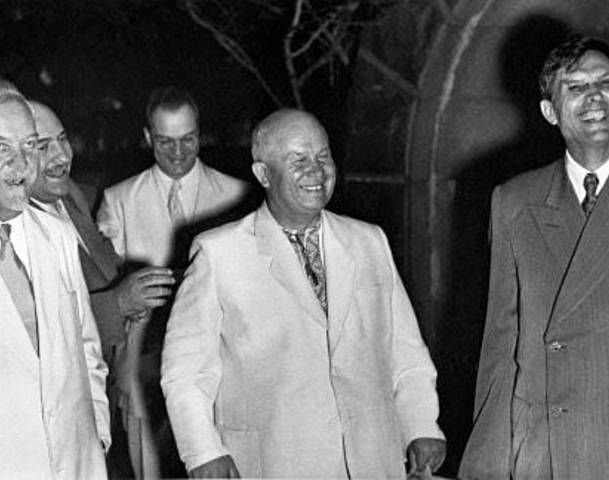
[Ukrainian chic (if anything that touches Khrushchev can be considered chic): Soviet head of state (center) wearing a Ukrainian shirt with his dress suit]
Still, Ukraine today lacks unifying identity with about half of the population speaking Russian as their native tongue (that includes, judging by videos I’ve seen online, a good number of protesters on Euromaidan). This Russophone Ukraine celebrates cultural connections with Russia and regards not Holodomor but World War Two as a key event in 20th century.
As an American, I see that our foreign policy goal should be curtailing Russia’s imperialism, and we should ally ourselves with moderate nationalists. I can see it their way: they remember serfdom and death coming from the east and want to ferment the flowering of Ukrainian culture through use of the poignant and melodic Ukrainian language. I’m not sure about Ukrainian political culture, where leaders’ personalities triumph over substance and every politician promises heaven on Earth and fails to deliver.
After Yushchenko’s humiliating defeat in 2010 the shadier nationalists are on the rise. The chauvinistic “Svoboda” (“Freedom”) party gained over 10% of the vote in 2012. Svoboda, who are known to be anti-Semitic (and anti-American) are, for the most part, anti-Russian. They are now in coalition with the mainstream nationalist parties “Fatherland” and UDAR. One doesn’t need to squint to see Svoboda activists waiving half red/half black UPA flags at the Maidan protests.
It might just be that the age of moderate nationalists in Ukraine is over. On the other hand, Svoboda antics can easily backfire in a country where so many ethnic Ukrainians speak Russian.
Although Euromaidan protests are on-going, they are no longer on the front pages in the West. I’m sure Ukraine will be back in the news, and next time Svoboda might be part of the story.
—————————-
This is a guest post by the author of the blog Sitting on the Edge of the Sandbox, Biting My Tongue.
Donations tax deductible
to the full extent allowed by law.

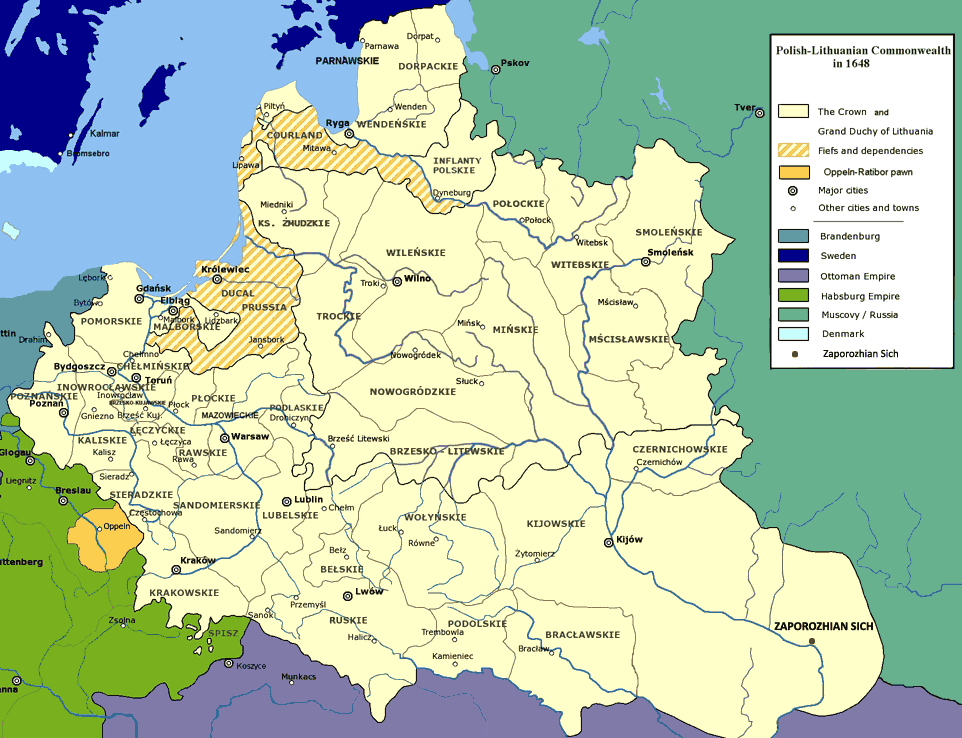
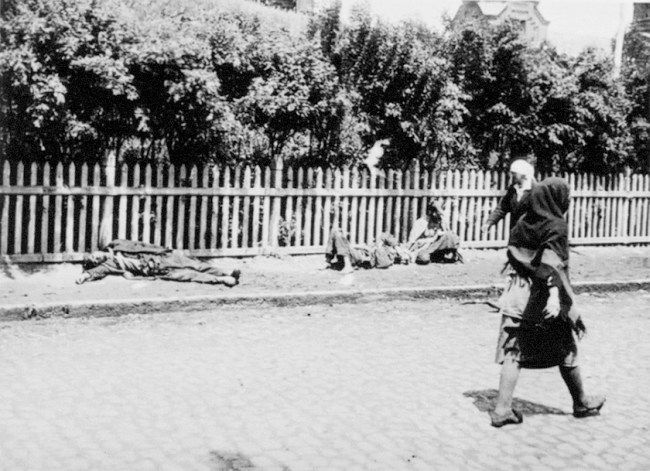
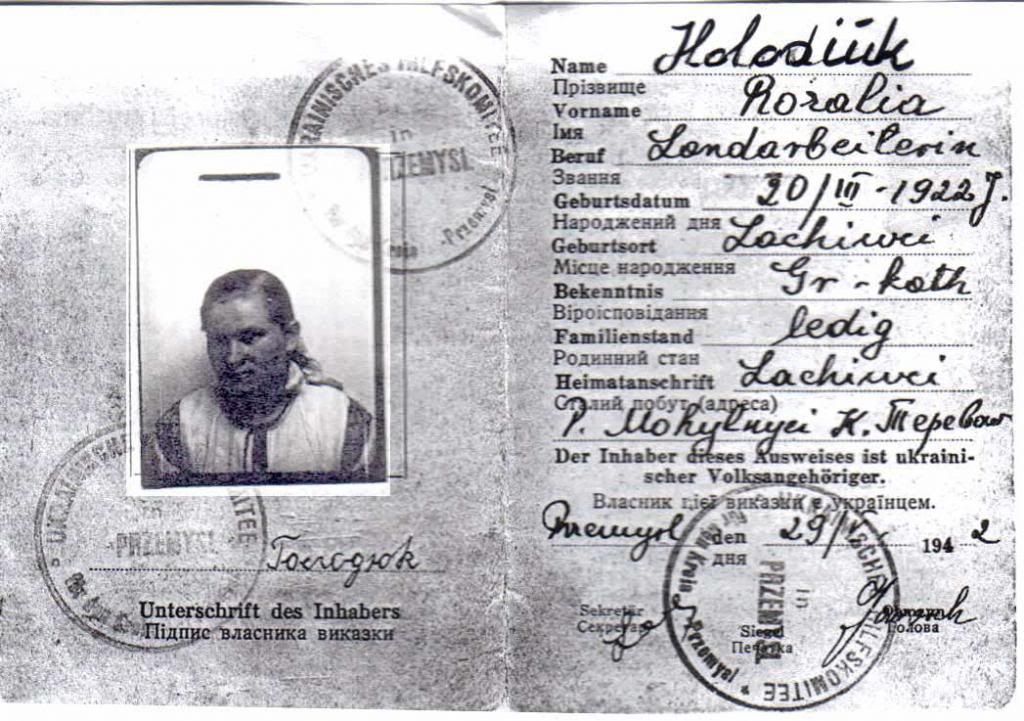







Comments
Thank you for that great review. Too bad the New York Times (or WaPo, or Wiki for that matter) aren’t looking for a concise review of how the current events in the Ukraine came to be.
May I suggest that you and Prof. Jacobson see whether one of the big conservative publications (e.g., Weekly Standard) would be interested in a version of your piece?
The Ukraine may become a pretty decent place to live, IF they can keep the Islamists from turning their country into a worse hell-hole than the Communists did.
Polish men have seen what has happened in Sweden, Norway and France and have put Islamists on notice:
“In Poland, there will be NO sharia law. NO headbanging or shouting Allahu Akbar in the streets. NO insulting our religion and our culture. NO burning cars like in France. NO burning down police stations [like in Sweden]. NO imposing your ways on us. NO calling us the sons of apes and pigs. If you do, we will be the ones waging jihad…on YOU!”
http://www.maggiesnotebook.com/2014/01/rape-jihad-europes-muslims-name-their-rape-gangs-take-your-turn-polish-men-send-message-to-rapists/
The Poles remember who saved Vienna. So do the Jihadis…
Why is this not anti-semitic?
Semitic: “This family includes the ancient and modern forms of Ahlamu, Akkadian (Assyrian-Babylonian), Amharic, Ammonite, Amorite, Arabic, Aramaic/Syriac, Canaanite/Phoenician/Carthaginian, Chaldean, Eblaite, Edomite, Ge’ez, Hebrew, Maltese, Mandaic, Moabite, Sutean, Tigre and Tigrinya, and Ugaritic, among others?. From Wikipedia, the free encyclopedia
Sorry.
This comment was to follow: Uncle Samuel | January 18, 2014 at 1:46 pm
The question remains open: What constitutes Ukrainian people? Is there an all-comprehensive definition of such ethnic entity? If not, then there will be no government that would be a representation of the whole nation, thus making maidans a perpetual phenomenon in the Ukrainian society until final disintegration of the country. Unfortunately. I agree, regardless who comes to power, it will be only a matter of a time when they will turn from the “most hopeful” into “the most hated”. As one person said:” The opposition is doomed to come to power.” ( Оппозиция обречена на власть )And then the cycle starts all over again.
I agree about the turn form “most hopeful” to “most hated”, as per Yushchenko’s example.
Our friends in Kharkiv who were energized during the orange revolution now say that the current protest is just to let the steam out. They are cynical and apolitical.
QUOTE: “.., this Left-Bank Western Ukraine,..”; QUIT QUOTE
I am not sure you know “which end is up”.
The point is, however, clear , right, Mykhayl? Just to make things simpler, I’m not in Ukraine. Wrong shot. It’s just hard to switch to the Cyrillic keyboard setting, which has a different layout.
dnovykov, you the author? Another quote from the author “…state media has its own agenda,.; quit quote. Besides the stereotypical presumption there is always a different angle, another perspective, a diplomatic view, etcetera…
In 1994 CBS aired a 60 MINUTES piece ‘The Ugly Face of Freedom’. 17 million Americans viewed five lies as fact. First: Ukrainians were “genetically anti-Semitic”. Lie two: before Nazis entered Lviv, the Ukrainians murdered 3,500 Jews. Historical records prove fleeing Russian NKVD murdered 3,500 Ukrainians. Third lie: misinterpretation of the word “zhyd,” or “Jew” from Ukrainian-Slavonic Scripture as meaning “kike”. Lie four: the Galician Division committed atrocities when records show they didn’t yet exist. The fifth lie state aboriginal as ultra-nationalism as a major cancer in Ukraine comparing it to the US KKK. The sixth lie accused Plast, Ukrainian scouts of being a Neo-Nazi group because they wear uniforms and march. No different than American scouts, while CBS allowed their Ukrainian usage left to the distortion of the viewer. CBS and Mike Wallace later said it was acceptable to distort the facts; destroying truth for effect. The Ukrainian Diaspora took CBS to court for these lies and won. CBS was to pay the Ukrainian lawyers’ fees. CBS has never actually apologized for producing that show.
A good recent balanced history in 4-parts is on YouTube; If not in blue cut & past into search:
Ruce to Ukraina http://www.youtube.com/watch?v=nRr-nrJ7xvQ
Little Rucea http://www.youtube.com/watch?v=tQp_9zGKNg4
Together Forever http://www.youtube.com/watch?v=eaCbRAcVr8Y
Sovereignty http://www.youtube.com/watch?v=x1ktGkGk7tI
If the country is Ukraina, all its citizens Ukrainian, that being so the aboriginal history and culture would be called Ruce, Rucen, Rucens (Chaucer’s XIVc spelling; CT, A 52-55)?
Good to hear from someone with ties to the Ukraine. Yet, I’ve always been under the strong impression that Khrushchev was noted for being the tough Soviet in charge of WWII Ukraine, a real butcher.
Somehow I doubt whether little Nikita was a good man, he went along to get along to live under Stalin. That seems to be an approach quite common in that part of the world.
You overlook the major reason the Ukraine’s future is bleak – demographics. The country has lost 12% of its population since the breakup of the USSR. It’s fertility rate is almost as low as Japan’s, and it also suffers from its young people emigrating, a problem Japan does not have.
It simply will not have enough young people to function – to fill jobs, to pay taxes, to allow the pensions and medical costs of the elderly to be paid.
A total economic collapse then becomes inevitable.
You forgot about NWO Its irrelevant yes so is your mentioning of antisemitism in the Ukraine Actually not quite Regarding the situation its the most appropriate Just as the nation started to wake up and free itself from the NWO bonds your beloved executors pass the law that forbids people to live Why do you not mention present Satanic regime with its animal rules throwing people out in the streets without food hope and perspective An estimated 8 mln Ukrainians left the country selling their property to your beloved government to look for the future elsewhere leaving their families children sometimes dying parents Its this order they marched on the streets in the desperate attempt to protect their rights Neither you snail have suffered a femine national clensing that was under a cover of the so called communst regime all the decident procecutions war nightmares etc But you definitely learned to cash on every misfortune that the none Jews You call them GOIMs have suffered Who is an animal buddy?
If my comment is banned is because of the snails like yourself
The author seems to think that all Ukrainian nationalist are antisemitic. For example there is absolutely no evidence that Simon Petlura the president of the first Ukrainian Republic (1918 – 1920) was antisemitic. Simon Petlura was supported the a guaranteed number of seats in the Ukrainian parliament for Jews which was something never heard of in any other European nation. He was also one of the few European leaders to support the establishment of a Jewish state in Palestine 30 – 40 years before it became fashionable. Also, there is plenty of evidence of his financially supporting Jewish refugees who fled the Soviet Union. Most importantly, Petlura was prolific writer who left large archives behind in which there is absolutely NO evidence of ANY antisemitic writing. Most of his private library remain intact in Paris. The author’s anti-Petlura feelings are a byproduct of his Soviet education which denigrated everything which was nationalistically Ukrainian.
The author must also not be aware that Stephan Bandera, the leader of the Ukrainian nationalists refused to give the order to harm and/or destroy the Jewish population of Western Ukraine. For decades the Soviet government perpetuated this myth (which the author has accepted as the truth). In fact, about 7 years ago researchers uncovered the original Nazi interrogation transcripts of their interrogation of Stephan Bandera soon after he was arrested. The transcript provides clear evidence of Nazi pressure to involve him in the liquidation of the Jews and a complete refusal on his part to do so. He was told that he would not be sent to a concentration camp in exchange for his support of the liquidation of the Jews. He refused at a least a dozen offers of clemency and was spent most of the war in a Nazi concentration camp. The transcript was found in the Weisenthal Library in L.A. of all places.
Western Ukraine has the lowest levels of antisemitism in the country and one of the lowest in Europe. Svoboda has most of it’s power so the author should not be concerned about antisemitism. Instead, the author should concern himself with the oligarchs who are creating the police state. The oligarch have suspended liberties and concentrated all power in their president dictator whom the Svoboda Party will remove from power sooner or later.
The author seems to think that all Ukrainian nationalist are antisemitic. For example there is absolutely no evidence that Simon Petlura the president of the first Ukrainian Republic (1918 – 1920) was antisemitic. Simon Petlura supported a guaranteed number of seats in the Ukrainian parliament for Jews which was something never heard of in any other European nation. He was also one of the few European leaders to support the establishment of a Jewish state in Palestine 30 – 40 years before it became fashionable. Also, there is plenty of evidence of his financially supporting Jewish refugees who fled the Soviet Union. Most importantly, Petlura was a prolific writer who left large archives behind in which there is absolutely NO evidence of ANY antisemitic writings. Most of his private library remain intact in Paris. The author’s anti-Petlura feelings are a byproduct of his Soviet education which denigrated everything which was nationalistically Ukrainian.
The author must also not be aware that Stephan Bandera, the leader of the Ukrainian nationalists refused to give the order to harm and/or destroy the Jewish population of Western Ukraine. For decades the Soviet government perpetuated this myth (which the author has accepted as the truth). In fact, about 7 years ago researchers uncovered the original Nazi transcripts of their interrogation of Stephan Bandera soon after he was arrested. The transcript provides clear evidence of Nazi pressure to involve him in the liquidation of the Jews and a complete refusal on his part to do so. He was told that he would not be sent to a concentration camp in exchange for his support of the liquidation of the Jews. He refused at least a dozen offers of clemency and spent most of the war in a Nazi concentration camp. His two brothers were killed in a Nazi concentration camp. The interrogation transcript was found in the Weisenthal Library in L.A. of all places.
Western Ukraine has the lowest levels of antisemitism in the country and one of the lowest in Europe. Svoboda has most of it’s power in Western Ukraine so the author should not be concerned about antisemitism. Instead, the author should concern himself with the oligarchs who are creating the police state. The oligarch have suspended liberties and concentrated all power in their president dictator whom the Svoboda Party will remove from power sooner or later.
I enjoyed your synopsis of Ukrainian history to give background to the current situation.
I was also born in what was the Ukrainian SSR, in Kiev. I don’t know how often you’ve been back, but I have been back 15 times in the past 18 years and I was cautiously optimistic about the future. There seemed to be marked improvement in both economics and corruption. At least in Kiev, in the Donbas poverty is worse than ever.
My understanding of the situation isn’t anything special, but my father was a high ranking officer of the SBU and his predictions from a year and a half ago are coming true. He predicted the EU issue, Putin and his threats, Yanukovych fighting and clawing to protect his power. His long term prediction was that Ukraine would stay tethered to Russia. He was a Ukrainian nationalist who was on an anti-corruption crusade; he was murdered several months ago under suspicious circumstances. This also wouldn’t have surprised him.
The reason people are protesting isn’t because of Yanukovych and Azarov rejecting the EU agreement, or Russian influence, or language. The biggest factor is the fact that 1% of the population controls the lions’ share of the wealth, and the government does everything to make it even easier for them to make or steal even more. That sounds like every government in history, but this is on a whole different level. It doesn’t matter if it is Yanukovych, Yuschenko or Tymoshenko; they differ on some ideology but the ultimate goal for all of them Is thievery.
The future is indeed bleak unless there is real change in the circus that is Ukrainian politics and the economic conditions improve (which won’t happen with the corruption and cronyism that is rampant there).
My hope for Ukraine is closer ties to Western Europe (considering I am a US citizen and consider myself an American first my opinion may be biased). If Ukraine needs to be split in two for this to happen it will be painful, but it may be necessary.
At the least there need to be men and women of integrity to lead this country. The crooks will control everything until people unite.
[…] friends and readers, please read my guest post about Ukraine at Legal Insurrection. Many thanks to Professor Jacobson for the […]
I should also add that I’ve seen much less anti-semitism in Ukraine than in tolerant Portland, Oregon where I live. There will always be Rabinovich jokes, but pogroms are a thing of the past. Stepan Bandera probably wasn’t the super hero some make him out to be, but he has obviously been smeared by the USSR (they were good at that, remember?)
Nice coments The author seems to misunderstand the real motives of Euro demonstrations in Ukraine Antisemitism has nothing to do with Ukrainian people going out in the streets so why exploiting this topic at all?
Because anti-semitism is the trump card “Great” Russians use on the “Little” Rucens when hillbilly, hick and hunky suites no longer get the desired repulsion.
In the West don’t forget the Holocaust Monopoly Trust. There are individuals out there whose lively hood depends on it. Anyone questioning their motives or accuracy they lable anti-semitic.
No, dnovykov is not the author, I am. I did think his comment was thoughtful.
As for the revisionist history in the last several comments, I don’t think the posters reflect positively on Ukrainian people.
Yours,
Snail
Really? Read what I wrote not what you hope I wrote. My “facts” are easily checked.
Kolosus said it best and I quote…
” The author seems to misunderstand the real motives of Euro demonstrations in Ukraine Antisemitism has nothing to do with Ukrainian people going out in the streets so why exploiting this topic at all?” quit quote.
Or is anti-semitism the real card you want to play? Distort the reader’s focus.
To tell you the truth, I’m not sure what your comment has to do with anything.
Stick to facts not chips on your shoulder.
Did you watch the YouTube I suggested?
I’d love to know when the author left “Kharkov”, because his synopsis sounds like Soviet textbooks. It’s absurd to implicate UPA in pogroms in 1941, since UPA wasn’t formed until the fall of 1942. The author is also phenomenally ignorant if he doesn’t know that UPA also fought the German occupation. Indeed, large swaths of Ukraine outside the cities were practically no-go zones for Wehrmacht except in heavily armed convoys.
He also seems to conflate the UNR of Hrushevsky and Vynnychenko with the Directory of Petliura, whose name is only “synonymous with pogroms” among Jews who are looking for a convenient scapegoat. As for the massacres of Poles, the author’s numbers are highly inflated, although the massacres did happen.
Next time, Professor, I’d appreciate it if you demand more credentials than “born in Kharkov” when inviting guest bloggers, especially when they tell you what to think about an entire country.
I think many of the comments above speak for themselves and do not require a rebuttal. But…
In re WW2 revisionism. I did provide multiple links in the body of my post, but in case there are any lingering questions I can do more. Lviv pogrom: real, well documented. See, for instance, the work of Canadian-Ukrainian historian John-Pail Himka:
http://www.academia.edu/1314919/The_Lviv_Pogrom_of_1941_The_Germans_Ukrainian_Nationalists_and_the_Carnival_Crowd
http://www.mankurty.com/holocaust/?p=529
Massacres of Poles in West Ukraine: real, well-documented, my numbers are correct. See the Polish government’s documents:
http://www.volhyniamassacre.eu/history/history
I had not linked to a single Soviet source. The single Russian source is an academic paper on Svoboda.
I did grow up in the Soviet Union, so guilty as charged. However, I am yet to see a single Soviet textbook that quotes Sakharov. If Kozak cares to provide a reference to one, I’d be curious to check it out.
That Bandera is “no hero” is an understatement. I am no hero. Bandera was a monster. To say that one doesn’t need to buy in Soviet propaganda. When Yushchenko made him “hero of Ukraine”, he caused a major scandal with Russians, Jews, Poles and the EU.
As for UPA and the pogroms, my quote is “Bandera’s followers launched pogroms and participated, on Bandera’s orders, in the Holocaust.” Bandera’s followers in this case is Organization of Ukrainian nationalists (OUN).
Petlura’s name is synonymous with pogroms because they were perpetrated by the army under his command. His personal feelings about Jews is a curious side issue.
I don’t know about anti-Semitism in Portland, OR, but I never heard of a political party in Portland that proposes to abolish Jewish community organizations and gets 10% of vote (granted, that’s not Svoboda’s major selling point).